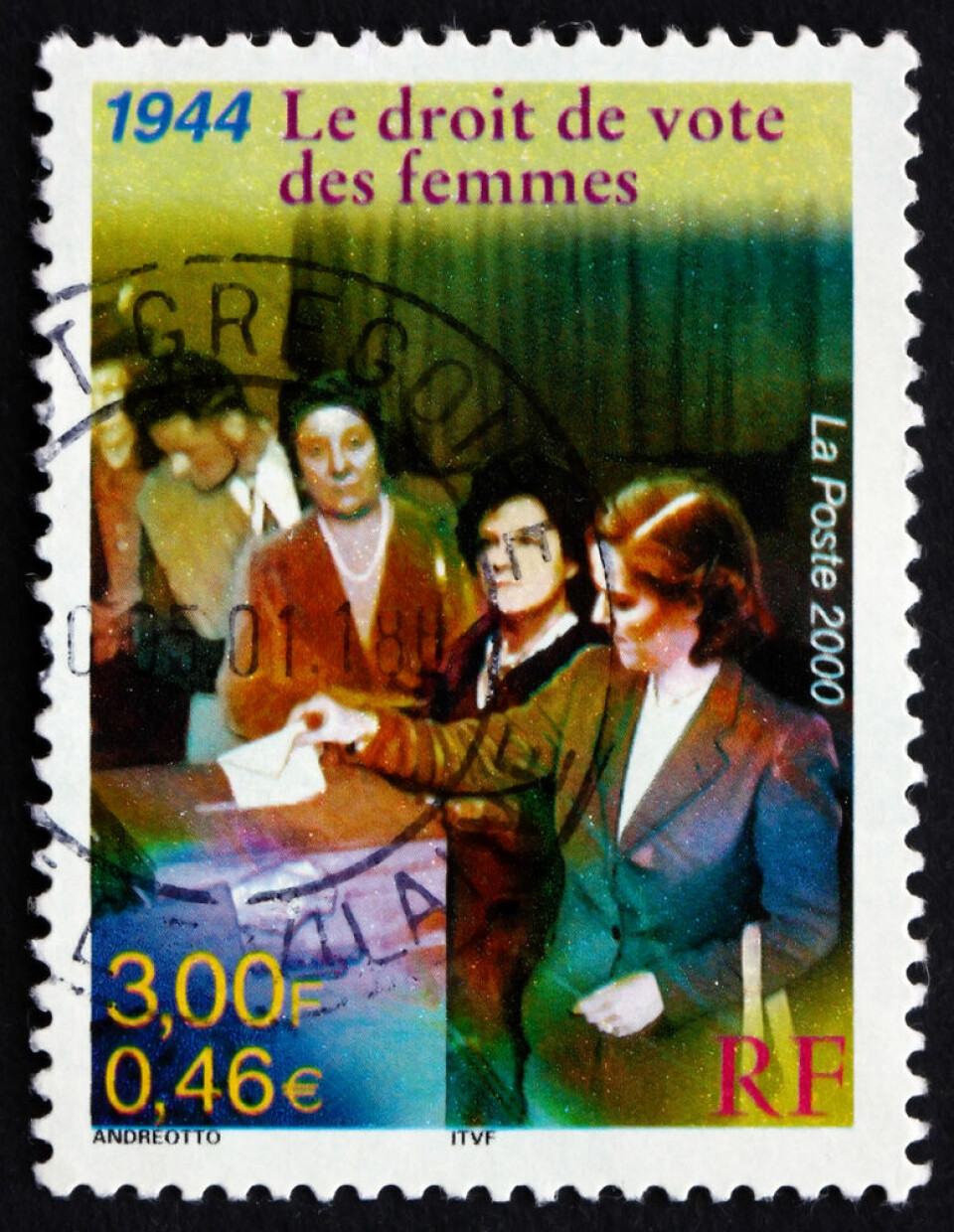This Sunday marks 80 years exactly since women were given the right to vote in France - April 21, 1944 - with the first elections taking place in April 1945.
The provisional government of Général de Gaulle issued the decree that would give women the right to suffrage. Women were also allowed to put themselves forward as political candidates for the first time.
Women’s right to vote in France came a full 96 years after suffrage was extended to all men, in 1848.
Fighting femmes
It came after several high-profile women fought for the right.
Among the most well-known and influential were Olympe de Gouges, Hubertine Auclert, and Jeanne Deroin, whose names should arguably be as well-known as the ‘suffragette’ Emmeline Pankhurst and her sisters Christabel and Sylvia in the UK.
Ms de Gouges was one of the first women in France to call for women’s right to vote.
Recalling the work of A Vindication of the Rights of Women by Mary Wollstonecraft from a similar era - she wrote in her 1791 Déclaration des droits de la Femme et de la citoyenne (Declaration of the Rights of Women and Citizens): "If women have the right to go to the scaffold [to be killed by guillotine], so they must also have the right to go to the polls.”
Ms de Gouges herself was guillotined in 1793, but her words sparked a generation of women to fight.
Press ridicule
One such woman was Jeanne Deroin, a journalist who stood as a candidate in the legislative elections after men were given the right to vote in 1848. She was ridiculed in the press.
Historian Nicole Cadène has said that the press reaction to Ms Deroin still echoes today.
“The greatest violence was the image of feminists portrayed by the press,” she said to Les Nouvelles News. “They were always old, ugly, ridiculous, violent and pretentious. It took immense courage to put up with so much denigration, the consequences of which are still being felt today.
“It's ingrained in the collective unconscious that feminists are hysterical,” she said.
Ms Cadène’s work has also uncovered another key figure in the history of women’s suffrage in France: Hubertine Auclert, who kept a journal for the period.
Ms Auclert founded the group Droits des Femmes in 1876, which became Suffrage des Femmes in 1883.
“At the expense of her personal life, she fought tirelessly for 40 years for women to be granted the right to vote,” said Ms Cadène. “In her view, it was the keystone of all other rights.”
The historian also says that Ms Auclert was the first to give the word ‘feminism’ the meaning we understand today. Prior to this, it was classed as a ‘disease’ affecting men who had become ‘feminised’, she said.
Ms Auclert was quite the militant; she once refused to pay her taxes as a political protest, tried to organise a public burning of the Civil Code in 1904, and even overturned a ballot box during the 1908 legislative elections.
20th century campaigns
Other women would take up the fight later, and in 1914, the largest-ever feminist march was organised in Place de la Bastille in Paris. More than 6,000 women attended. Later, the organisers managed to gather 505,972 signatures on a petition in favour of giving women the right to vote.
Women’s fight for the vote took a backseat during World War One, said Ms Cadène, but it was during this time that ‘suffragists’ in the UK began to become denigrated in the press, and police campaigns against women were stepped up as the women themselves increased their militant acts.
UK newspaper The Daily Mail was the first to call women ‘suffragettes’ as a pejorative term; but the women reappropriated the term and used it as a badge of honour instead. French newspapers later picked up on the term and started using it too.
The UK suffragette campaigns in turn inspired campaigners in France, and feminists continued to present bills calling for the right to vote in the French parliament. These bills were reportedly voted down by both the Senate and Assemblée, but the women kept going.
It paid off in 1944. In the next elections - in 1945 - women were allowed to take part, and 33 female MPs were voted in.
‘It really mattered to us’
In 1945, one woman, Simone Darré - now aged 104 - was among the first women to vote in the municipal elections, among the 12 million women who had become eligible to vote for the first time.
She remembers the experience clearly, telling FranceInfo: “There were lots of us in the room to vote, it was a day that really mattered to us.” She said her husband believed it was “useless” to have women vote, because - he said - married women would just vote the same way as their husbands.
“I told him that wasn’t true,” said Ms Darré. At that time - perhaps to prove him wrong? - she voted for a left-wing candidate, while her husband voted for a right-winger.
Another first-time female voter, Irène Destrac, aged 100, recalls the injustice of the previous system. “An idiotic man was allowed to vote, but an intelligent woman could not,” she said.
How does France compare to other countries?
France was the 59th country in the world to extend the right to vote to all women, and came 51 years after the first - New Zealand, in 1893.
Technically, Sweden was the first country to allow female taxpayers to vote in 1718, but this right was rescinded later. Corsica also allowed women to vote in its independent Diet assembly, but this was rescinded in 1769 when the island became part of France.
Various countries and states - including the Grand Duchy of Tuscany, the Pitcairn Islands, South Australia, and the states of Wyoming, Kansas, and Utah in the US - granted women the right to vote in some capacity in earlier years (1860s-1880s), but most limited this right to property-owning women, or literate women only.
When it comes to giving all women the right to vote nationwide, the timeline includes:
New Zealand: 1893 (although women could not stand for election until 1919)
Australia: 1902 (women could vote in federal elections on the same standing as men)
Denmark: 1908 (local elections)
Norway: 1913
Germany, Austria, Poland: 1918
Canada: 1918 (women aged 21 and over only)
UK: 1918 (women over 30 with property only). All women in 1928.
Luxembourg, Netherlands: 1919
USA: 1920 (white women only). All women in 1965.
Sweden: 1921
Spain: 1924 (single women and widows only). All women in 1931.
France gave all women the right to vote in the same year (1944, with elections in 1945) as Japan and Italy.
Notable countries to give women the right to vote later than France include:
Portugal: 1946
Argentina: 1947
Singapore: 1947
Belgium: 1948
Greece: 1952
Monaco: 1962
Andorra: 1970





























